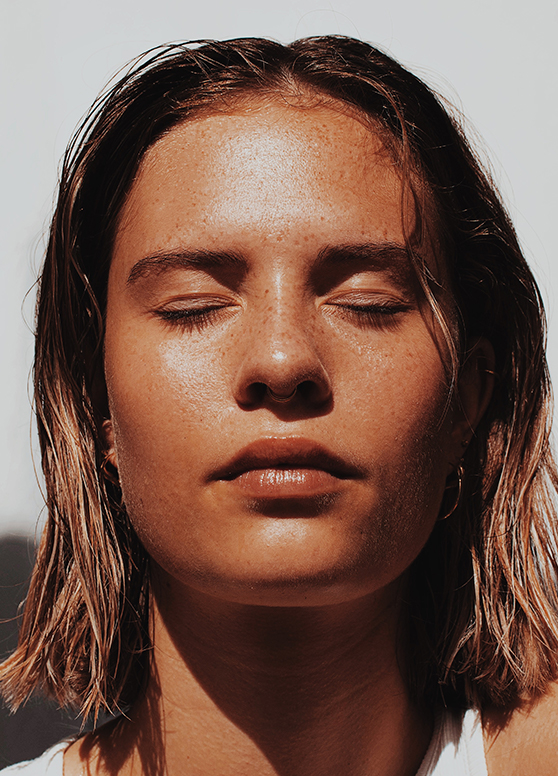
JUNE 30, 2020 / Skincare
Is Alcohol in Skincare Something to Avoid?

There’s a lot of scuttlebutt around alcohol in skincare. Should you be avoiding alcohol? Are they good, or are they bad? I’m going to break it down for your peace of mind in the skincare section.
Two Types of Alcohol In Skincare Products
There are two types of alcohols in skincare: lower and larger molecular weight.
Lower molecular weight alcohols include isopropyl alcohol, ethanol, sd alcohol and alcohol denaturant.
Larger molecular weight alcohols are better known as “fatty alcohols.” These include cetyl, stearyl, and cetearyl. Fatty alcohols are derived from plant sources, like coconut oil and palm oil.
Benefits Of Lower Molecular Weight Alcohol In Skincare Products
Often considered the “bad guys,” these alcohols are placed in skincare formulations to:
- Enhance penetration of active ingredients into the skin
- Allow ingredients to dissolve better in a formulation.
- Create a light weight feeling on the skin.
The reason many people are like oh em gee is that these alcohols evaporate from the skin very quickly, dragging water out of the skin and leading to dryness and an impaired barrier function. The process is called trans epidermal water loss. As a result, the top layer of the skin is not hydrated enough, leading to problems like dryness, irritation and increased sensitivity to other products.=
Don’t be turned off just yet. These alcohols are a fabulous fit for certain skin types, when used properly.
The good thing about these alcohols is that they can enhance penetration of active ingredients into the skin. Vitamin C and retinol have a hard time getting in the skin, so these alcohols can really help the formulation perform.
If you have oiler skin, you will find these alcohols feel enjoyable on the skin, which is not to say someone with dry skin wouldn’t also like the feel. It all depends on how you react to the product.
Individuals with eczema, rosacea or very dry skin, however, will most likely not get along with these alcohols.
There is always risk for irritation, if you are overusing the product or using it alongside other irritating ingredients. For example, if you’re using a product with denatured alcohol in addition to products containing fragrance, acids or more denatured alcohol, yeah, you’re most likely going to experience irritation.
Acids and fragrance can be irritating on their own, so you want to make sure you’re not using them in combination with your alcohol products.
Even if you aren’t irritated right away, with continued use you will be.


Benefits Of Larger Molecular Weight Alcohol In Skincare Products
Unlike low weight molecular alcohols, fatty alcohols are actually moisturizing.
These noncomedogenic alcohols are used as thickening agents and provide a moisturizing texture. They can also act as humectants to hydrate the skin and prevent trans epidermal water loss.
They make for a great ingredient.
If you have oily skin, you might love them, or you may feel like you need less of them in your skincare routine. It all depends on how you react with the product.
Don’t disregard a product because of the alcohol in it. You might really like the overall formula!
Moral of the story: if used properly and tolerated, alcohols are completely fine to use in skincare products.
With Love,
Nicole
Share It:
